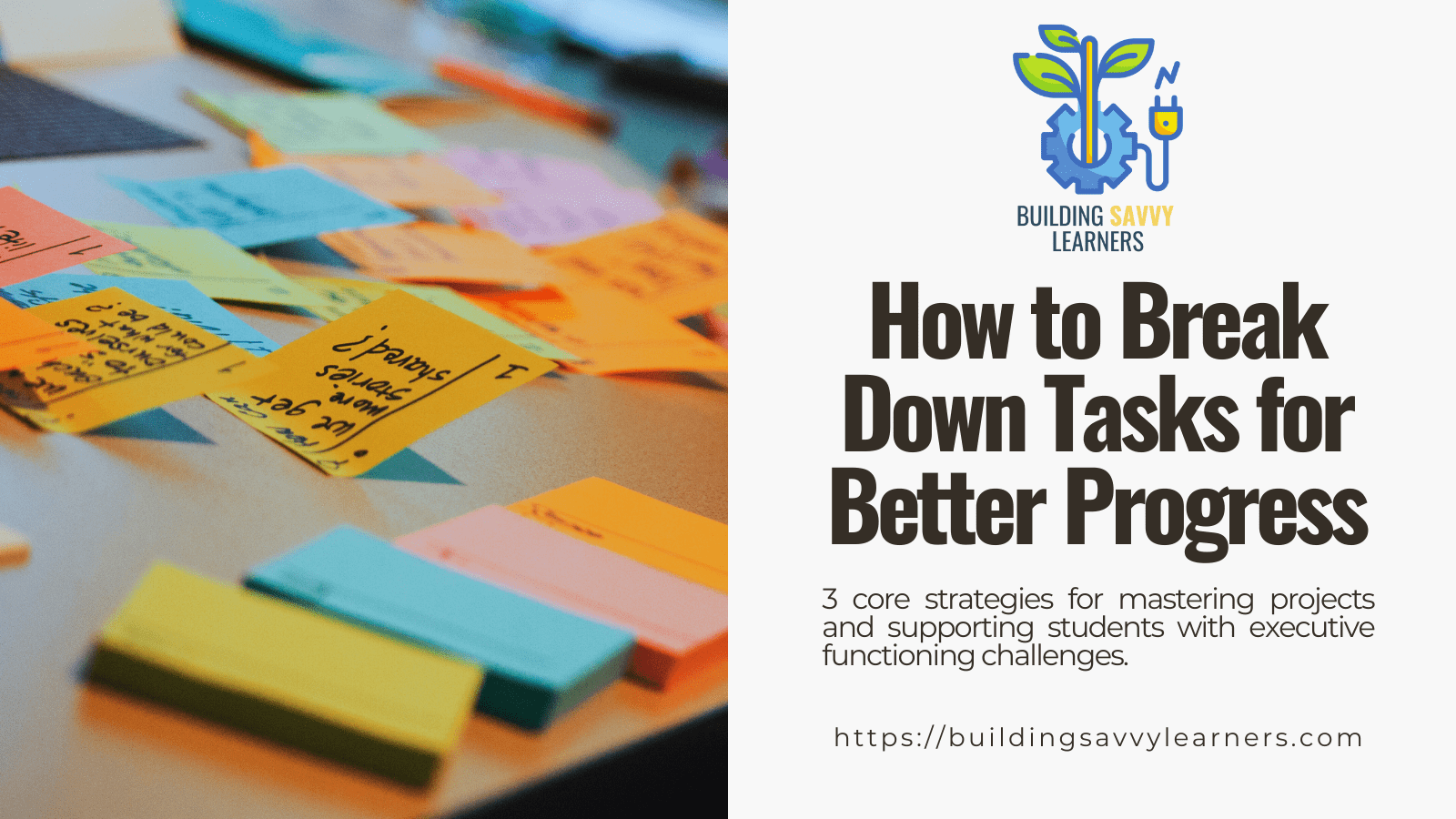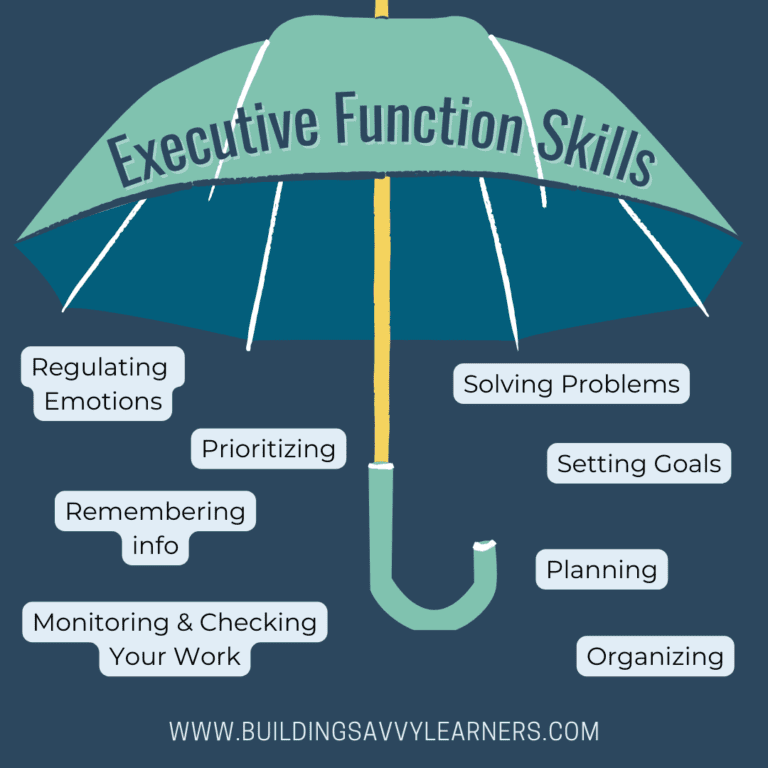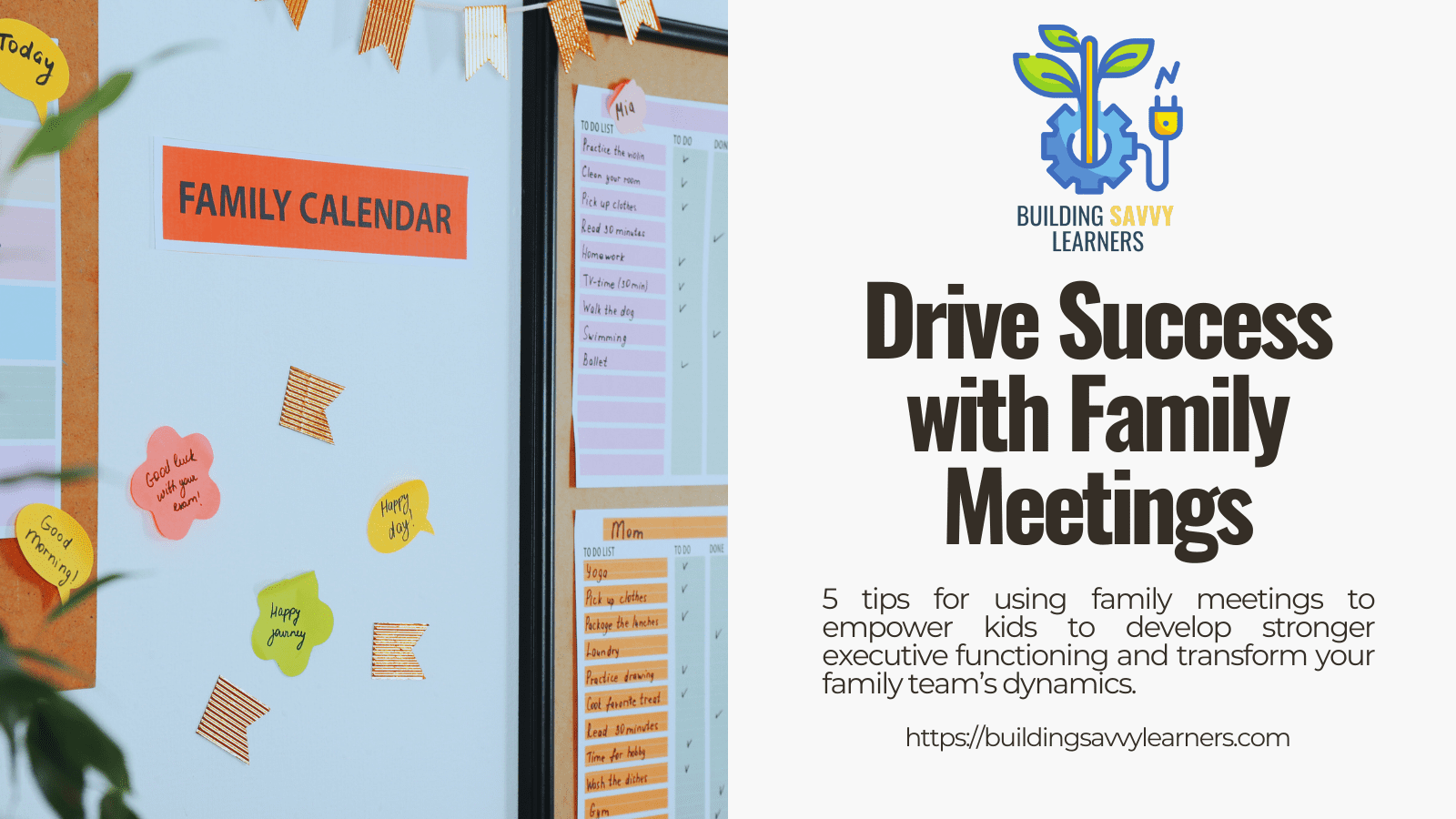
Mastering Projects: How to Break Down Tasks for Better Progress
Executive function (EF) is an umbrella term to describe the mental skills needed to plan, focus, remember instructions, and manage multiple tasks. These cognitive processes

Has someone ever told you, “If only you worked harder or tried more, you could [insert goal here]…?”
But often, it’s not about effort. Sometimes, the hardest-working person in the room gets disappointing results.
Maybe you’re a student who wants to get better grades, but you need help to stay motivated in your classes. You do your homework most of the time but struggle with tests and quizzes.
Maybe you’re that student’s parent, tired of constantly nagging about homework or reminding them to do routine tasks. You’re worried your child isn’t living up to their potential or caring about their future as much as you do.
And if there’s a learning difference involved, this may feel extra complicated. Most of the world is not designed with neurodivergent brains in mind.
We can all do hard things, but that doesn’t mean we have to do it in the hardest way possible.
What if executive function (EF) skills are the key factor you’re missing?

Executive function is an umbrella term to describe the underlying skills needed to get things done. The prefrontal cortex helps us determine what we want to do and how to progress toward that goal, but that part of the brain doesn’t fully develop until people are in their mid-20s. Learners with variable attention due to ADHD, anxiety, and other learning challenges may also lag significantly behind their peers in managing these complex processes. Many teens can feel incredibly overwhelmed as academic demands grow in middle and high school.
Our team of expert educators works with students of all ages to develop the tools, routines, and self-talk needed to get things done. We customize instruction to reach the individual needs of each learner, leveraging their strengths and looking for opportunities to build toward more success.
Our Friday newsletter is packed with executive function strategies you can use to build the savvy learners in your life.

Executive function (EF) is an umbrella term to describe the mental skills needed to plan, focus, remember instructions, and manage multiple tasks. These cognitive processes

Five tips for using family meetings to empower kids to develop stronger executive functioning and transform your family team’s dynamics.

As we learn more about the connection between working memory and executive function, learn 5 strategies to compensate for memory weaknesses.
| Cookie | Duration | Description |
|---|---|---|
| cookielawinfo-checkbox-analytics | 11 months | This cookie is set by GDPR Cookie Consent plugin. The cookie is used to store the user consent for the cookies in the category "Analytics". |
| cookielawinfo-checkbox-functional | 11 months | The cookie is set by GDPR cookie consent to record the user consent for the cookies in the category "Functional". |
| cookielawinfo-checkbox-necessary | 11 months | This cookie is set by GDPR Cookie Consent plugin. The cookies is used to store the user consent for the cookies in the category "Necessary". |
| cookielawinfo-checkbox-others | 11 months | This cookie is set by GDPR Cookie Consent plugin. The cookie is used to store the user consent for the cookies in the category "Other. |
| cookielawinfo-checkbox-performance | 11 months | This cookie is set by GDPR Cookie Consent plugin. The cookie is used to store the user consent for the cookies in the category "Performance". |
| viewed_cookie_policy | 11 months | The cookie is set by the GDPR Cookie Consent plugin and is used to store whether or not user has consented to the use of cookies. It does not store any personal data. |